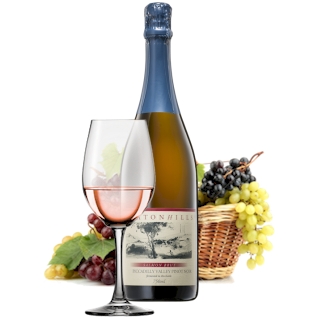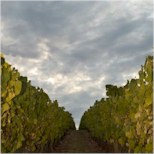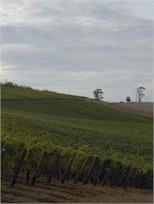


The family's group of companies extended to Australia, establishing Kreglinger Australia in 1893. In 2000, Kreglinger (Australia) Pty Ltd diversified into wine production and marketing with the establishment of Norfolk Rise Vineyard and winery at Mount Benson in the Limestone Coast region of South Australia and the following year took majority ownership of the Pipers Brook Winery. Kreglinger Wine Estates, the producers of the internationally acclaimed Pipers Brook Vineyard, Ninth Island and Kreglinger wines has a history that encompasses over 30 years as a modern pioneer and leader of the Tasmanian fine wine industry.

The Kreglinger Estate vineyard is located at Pipers Brook. It consists of steep south easterly slopes and fertile red Kraznozem soils and is non-irrigated. The south eastern aspect of this vineyard, old vines and high-density plantings make it ideal for the production of Kreglinger and Ninth Island Sparkling wines. The vineyard is managed manually and requires careful attention to the influences of Tasmania and site climatic conditions. The quality of wines produced from this vineyard can also be attributed to careful vine canopy and crop load management.
Its the subtle differences in climatic conditions between this site and and others that becomes part of the complex answer to the production of cool climate premium sparkling wines of the highest quality that Kreglinger strive for.
The cooler climatic conditions experienced by the coastal Pipers Brook vineyard creates a perfect environment for the production of sparkling wines due to the fruits retention of naturally high acidity, lower sugar accumulation yet early flavour ripeness. Let the fruit hang on the vines a little longer and the premium table wine production of Pinot Noir and Chardonnay.

It is hard to believe that in such an ancient form of agriculture that new systems of trellising vineyards are being evolved every year, but it is true. The modern vineyard systems assist quality and tend to manipulate vines so that vine architecture which arises naturally in great vineyard sites can be approximated on less privileged locations. Pipers Brook Vineyard helped to pioneer close-planted VSP (vertical shoot positioned) vineyards in Australia and even now has some of the largest areas of close-planted vines. The vertically shoot positioned (VSP) vines are hand pruned in winter and hedge trimmed in summer.
Modern computer controlled Bucher airbag presses are used with a modified champagne cycle to produce around 450 litres per tonne of free run juice from whole bunch pressed grapes and only this free run component is used. Base wines are fermented in both barrel and tank, and a percentage is aged on lees until the first blend.
Close planting provides one way to display a large leaf canopy and keep fruit from being too shaded. The newer Scott Henry system, named after the eponymous grower in Oregon, more intensively arranges vine shoots to expose grapes to the sun. Kreglinger Estate are now using this system on a majority of the sites as it appears to optimise fruit quality for their superb sparkling wines.